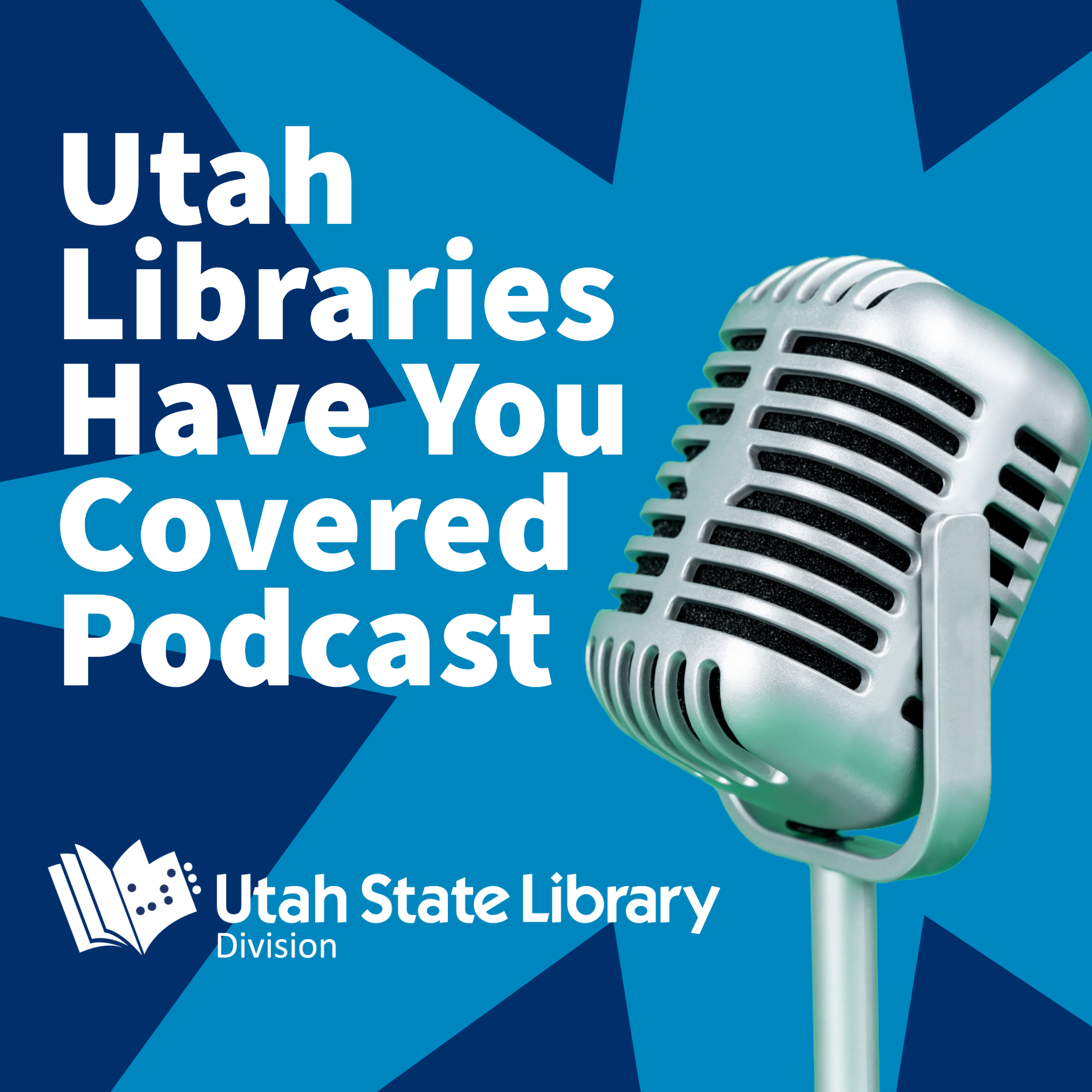Utah Libraries Have You Covered

Utah Libraries Have You Covered
Podcast Description
A podcast from the Utah State Library Division to discuss Utah’s libraries, state agencies, and local authors.
Podcast Insights
Content Themes
Explores library services, state engagement initiatives, and local authorship with episodes covering the Utah State Library’s resources for the blind, the role of cultural agencies in community engagement, and discussions on children’s literature like A Dinosaur Named Ruth.

A podcast from the Utah State Library Division to discuss Utah’s libraries, state agencies, and local authors.
Join our inspiring conversation with Macy Lewis, a Utah-based author and University of Utah graduate. She is known for writing children’s books and romantic suspense novels, such as the “Hidden Hearts” series. She often focuses on themes of friendship, adventure, and faith. Macy has been blind since birth and works as a braille proofreader.
Macy Lewis – Guest
Jeri Openshaw – Host
Jason Powers – Audio Recording Manager

Disclaimer
This podcast’s information is provided for general reference and was obtained from publicly accessible sources. The Podcast Collaborative neither produces nor verifies the content, accuracy, or suitability of this podcast. Views and opinions belong solely to the podcast creators and guests.
For a complete disclaimer, please see our Full Disclaimer on the archive page. The Podcast Collaborative bears no responsibility for the podcast’s themes, language, or overall content. Listener discretion is advised. Read our Terms of Use and Privacy Policy for more details.